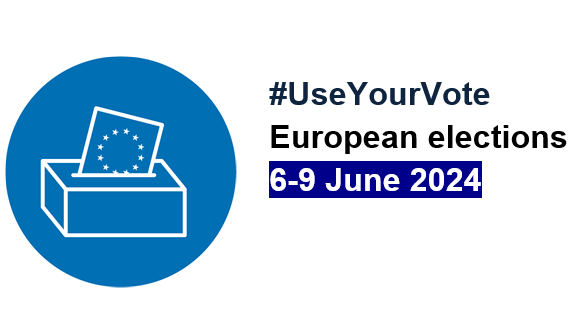
The European Consumer Centres Network (ECC-Net) has published a ‘position paper’ containing a series of recommendations for the European Parliament that will be elected in the next European elections. The aim is to contribute to improving the rights of consumers when shopping in Europe. The document highlights the support of the European Consumer Centres (ECC-Net) for the eco-design standards that the EU is working on to ensure sustainable, durable and environmentally friendly products, but stresses the need for further development of an industry with more ethical production practices, more standardised and accessible consumer information on the possibility of repair and new measures against planned obsolescence.
On the other hand, one of the concerns addressed in the ‘positioning sheet’ is the rapidly evolving digitalisation of markets and the economy, which should be addressed - in a decisive way - to meet the new needs of consumers and society as a whole. To this end, it is important that authorities respond with strong and visionary legislation to ensure that people remain at the centre of policy attention, while being adequately protected in an increasingly complex world. To achieve this, ECC-Net warns that - over the coming years - further progress should be made on those issues that are particularly critical:
- Artificial intelligence (AI).
- Digital payments.
- Mobility and passenger rights.
- Protection against fraud and scams.
- The development of a more sustainable and fairer European Single Market.
Recent European proposals to simplify Alternative Dispute Resolution (ADR) mechanisms call for European centres to be designated as ADR contact points. This would strengthen their role in defending the rights of consumers.
Recommendations to boost consumer rights:
Protection from AI
- Ethical guidelines for developing and implementing AI.
- Priority protection of privacy, data protection and non-discrimination.
- Protection from AI algorithms with measures to ensure transparency and understanding of the impact of AI on people's decisions and lives.
- Control over consumers' personal information in AI systems.
- Assessments by AI developers to determine potential risks to consumer rights and implement mitigating measures.
- Ongoing monitoring of the impact of AI on consumers to adjust consumer protection regulations.
- Comprehensive and swift enforcement of rules regulating digital aspects.
Regulation of digital payments
- Encryption and cybersecurity standards to robustly protect data.
- Secure and simple authentication to prevent unauthorised access to digital wallets and payment accounts.
- Increased transparency on the use and storage of payment data.
- Strict consent protocols.
- Simple and effective monitoring, surveillance and reporting of fraud or suspicious activity.
- Systematic refunds for fraudulent payments.
Improved mobility and enhanced passenger rights.
- Legislative framework for airline insolvencies.
- Clear rules on procedures for compensation, rebooking in case of cancellation, and repatriation of passengers in case of airline insolvency.
- Clear rules on voucher and bonus policies (validity periods, bonuses, etc.).
Fraud protection
- Specific protection for ‘influencer marketing’.
- Protection against surreptitious advertising and commercial content.
- New responsibilities for influencers, their agencies and brands.
- Publication of non-compliant economic actors.
Patient safety and quality healthcare
- Protection against medical services and treatments advertised on digital media.
- Ensuring that online healthcare treatments are offered by medical practitioners and not by commercial agents.
Removing remaining barriers in Europe's Single Market
- Ensuring access to online content and services without unjustified restrictions. Consumers continue to face digital barriers when trying to access or use online audiovisual content in the EU.
- Updating and effective implementation of EU rules on geo-blocking to remove remaining barriers and better respond to consumers' expectations. Geoblocking rules should cover all audiovisual services, such as music, software, online games and audio books.
- Increased monitoring and supervision to ensure that service companies do not discriminate against consumers on the basis of the Single Euro Payments Area (SEPA) country where their bank account is held. There are still certain operators that do not accept direct debits to bank accounts in other European Economic Area countries.
- Regulation and supervision to ensure affordable access to basic consumer needs.
Source of information:
Position paper: ECC-Net's Recommendations Post-European Elections (2024/2029)
About ECC-Net.
The ECC-Net (European Consumer Centre-Network) brings together the European Consumer Centres in the EU, Iceland and Norway. Since its creation in 2005, each of these Centres provides free, personalised information, assistance and advice to domestic consumers who have problems with purchases performed in another ECC-Net country, as well as in the UK. Their aim is to help citizens understand their rights as consumers and to help them enjoy all the benefits of the Single Market. The European Consumer Centre in Spain (ECC-Spain) is a public service co-funded by the European Union and the Ministry of Social Rights, Consumer Affairs and Agenda 2030 and is part of the ECC-Net network.

More information: